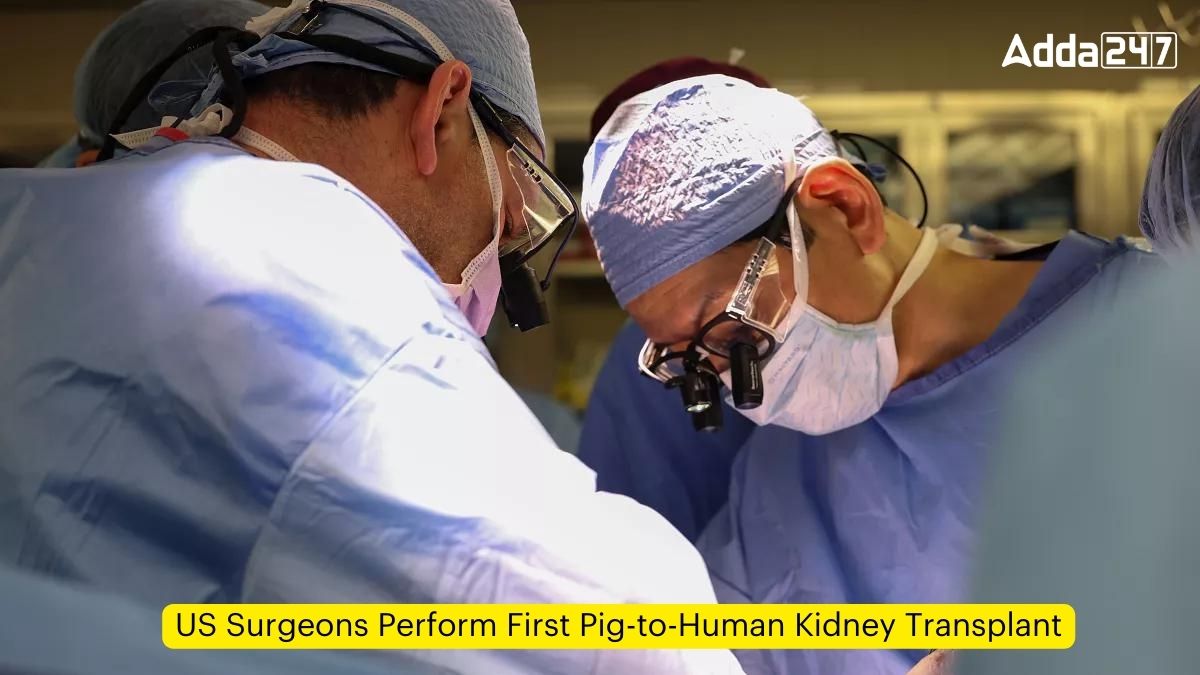In a groundbreaking medical achievement, surgeons from Massachusetts General Hospital in Boston have performed the first pig-to-human kidney transplant. A 62-year-old man with end-stage renal disease received a new kidney from a genetically modified pig.
Significance and Interest in Long-Term Results
Experts are keenly interested in the long-term results of this pioneering animal-to-human transplant. Dr. Jim Kim, director of kidney and pancreas transplantation at the USC Transplant Institute in Los Angeles, highlighted the importance of this milestone.
Recipient’s Medical History
The recipient, whose name has not been disclosed, had previously received a human kidney transplant at the same hospital in 2018 after seven years on dialysis. However, the organ failed after five years, and he had to resume dialysis treatments.
Genetically Modified Pig Kidney
The transplanted kidney was provided by eGenesis, a company based in Cambridge, Massachusetts. The pig from which the kidney was sourced had been genetically edited to remove genes harmful to a human recipient and add certain human genes to improve compatibility. Additionally, the company inactivated viruses inherent to pigs that could potentially infect humans.
Previous Successful Transplants in Monkeys
Prior to this human transplant, kidneys from similarly edited pigs raised by eGenesis had been successfully transplanted into monkeys. These monkeys were kept alive for an average of 176 days, with one case lasting for more than two years, according to researchers’ findings published in the journal Nature in October 2022.
Immunosuppressive Drugs and Experimental Antibody
To help prevent rejection of the pig organ by the patient’s immune system, doctors used a combination of immunosuppressive drugs and an experimental antibody called tegoprubart, developed by Eledon Pharmaceuticals.
Progress in Xenotransplantation
This surgery marks significant progress in the field of xenotransplantation – the transplanting of organs or tissues from one species to another. Dr. Robert Montgomery, director of the NYU Langone Transplant Institute, who was not involved in the case, stated that the field “is marching closer to becoming an alternative source of organs for the many hundreds of thousands suffering from kidney failure.”
Organ Shortage and Future Clinical Trials
According to the United Network for Organ Sharing, more than 100,000 people in the U.S. await an organ for transplant, with kidneys being in the greatest demand. Dr. Montgomery expressed that another significant step will be when the FDA authorizes clinical trials to better understand the most effective approaches for patients on waiting lists.
This groundbreaking achievement represents a promising step towards addressing the critical shortage of organs available for transplantation and potentially saving countless lives.




 NIM–JIM&WS Team Successfully Summits...
NIM–JIM&WS Team Successfully Summits...
 Gamini Gives Birth to Three Cubs at Kuno...
Gamini Gives Birth to Three Cubs at Kuno...
 Shashi Tharoor Conferred Honorary D.Litt...
Shashi Tharoor Conferred Honorary D.Litt...








